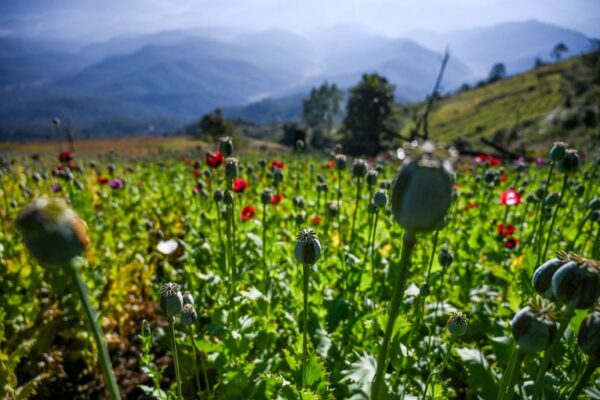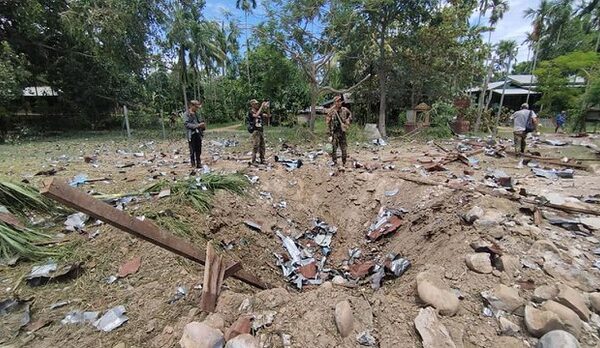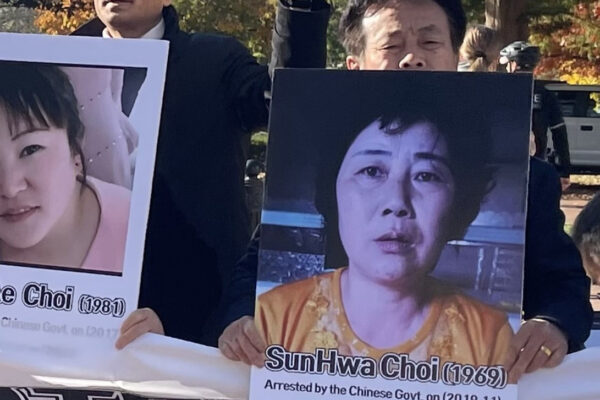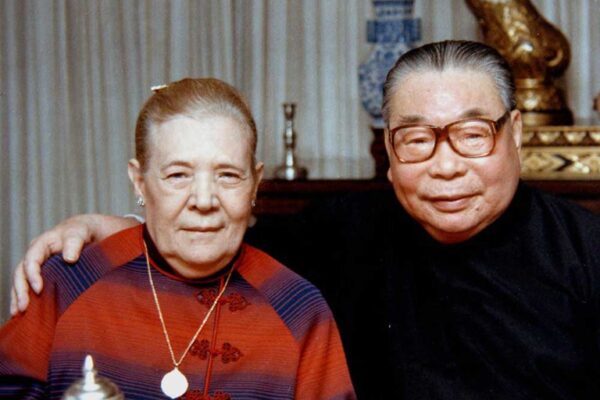
Junta raid kills 10 Rohingyas, injures 17 in Myanmar’s Rakhine state
Ten Rohingyas were killed and another 17 injured in the Buthidaung and Mrauk-U townships in Myanmar’s Rakhine state, as a result of airstrikes by the junta on Thursday, local residents told RFA Burmese on Friday. At around 9 p.m. on Thursday night, heavy artillery fired from a junta camp struck Zay Di Taung village in Buthidaung township. The attack resulted in the loss of six family members, including three Rohingya children who were at home asleep, and left another member of the family critically injured, according to the residents. The casualties included Zafaul, a 60-year-old man; Ansaula, a 19-year-old man; Sotyod Ahmed, a 5-year-old boy; Norol Ahmed, a 3-year-old boy; Halayar, an 11-year-old boy; and Tausmi Nara, a 20-year-old woman. “Three heavy weapons fell into the village on Thursday night. One [of three] fell directly on the houses. All six members of the family who were sleeping in the house died and it was also burned down,” a Rohingya resident of Zay Di Taung village, who wished to remain anonymous for his security reasons, told RFA Burmese Friday. “So the bodies were also burnt. The other one was injured while trying to evacuate,” said the resident, adding that the heavy artillery was fired by the junta camp at Thone Se Ta Bon Zay Di hill in Buthidaung township. Rohingyas are fleeing due to battles in Mrauk-U’s Myaung Bway village on Dec. 28. (AK/Citizen journalist) Locals said that there are more than 60 households with more than 300 population in the Rohingya-dominant Zay Di Taung village. Despite the pervasive fear among villagers caused by the casualties from the conflict, Rohingya Muslims remain restricted from moving freely, even within Rakhine state. Consequently, they are compelled to stay in their village, lacking any refuge to flee to in times of danger. Zay Di Taung village is not alone. Four Rohingya were killed and 16 others were injured in junta’s Thursday airstrikes on Rohingya villages, including Kaing Taw, Bu Ta Lone and Baung Dut villages in Mrauk-U township, according to the locals. The junta raid came after anti-junta force Arakan Army (AA) attacked the Myaung Bway, also known as Myaung Bway Chay, Police Station in Mrauk-U township on Thursday, a resident, who wished to remain anonymous for fear of reprisals, told RFA Burmese on Friday. “The AA attacked the Myaung Bway Police Station on Thursday. Then the junta army attacked with heavy artillery and airstrikes, causing casualties when the nearby villages were also shot. The homes were also burned down. The junta opened fire from the side of Mrauk-U and Minbya, and shot them with jets,” the resident said. The AA claimed on Thursday that the junta attacks were “deliberately” carried out. The junta said in a Friday statement that no air strike had been carried out on Mrauk-U’s Myaung Bway village and surrounding area on Thursady. It also claimed that when the AA used the drone to attack the Myaung Bway police station from a distance, the junta security forces used anti-drone weapons, or jammers, which made drone bombs fall near the surrounding villages. The statement made no mention of the death of Rohingyas in Buthidaung township’s Zay Di Taung village. Rohingyas are fleeing due to battles in Mrauk-U’s Myaung Bway village on Dec. 28. (AK/Citizen journalist) Based on records gathered by RFA, 40 civilians lost their lives and over a hundred were wounded during the clashes between the AA and the military junta, which reignited for over a month from Nov. 13 to Dec. 29. Following the military clearance operations and assaults in 2017, over 700,000 Rohingyas from Northern Rakhine sought refuge in Bangladesh. Presently, over a million Rohingyas are residing in refugee camps along the Bangladesh border, as reported by the United Nations and various international organizations. It is said that about 1.4 million Rohingyas still remain in Myanmar’s Rakhine state, and these Rohingyas are enduring food scarcity and severe limitations in Myanmar, while also grappling with criminal activities and gang violence in refugee camps in Bangladesh. Consequently, they are taking perilous sea journeys to reach Indonesia or Malaysia. Since last November, over 1,500 Rohingyas have reached Indonesia’s Aceh province by boat. Indonesian President Joko Widodo has pledged temporary aid for these Rohingya refugees, yet there is resistance from the local population. This situation has raised alarms among human rights groups. Translated by RFA Burmese. Edited by Taejun Kang and Elaine Chan.







